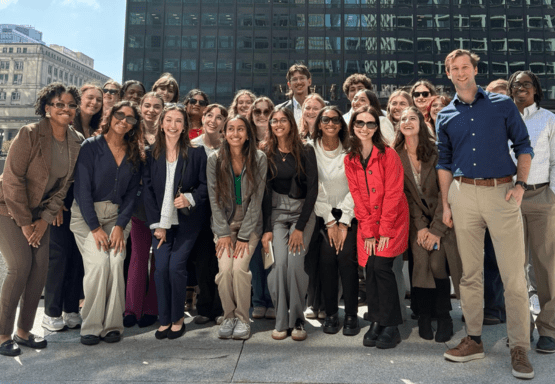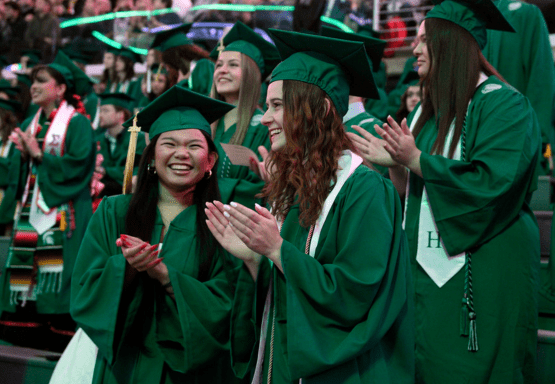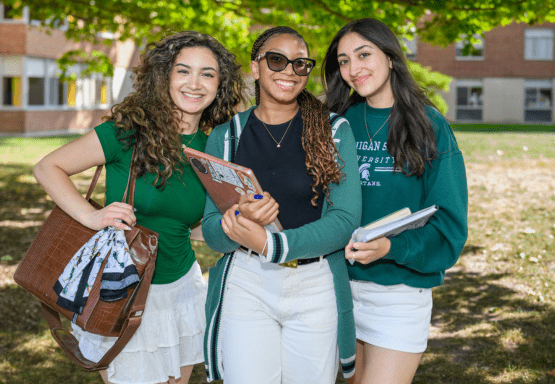Hispanic Heritage Month Alumni Reflections
You’ve pursued some interesting opportunities since graduating! Can you tell us a bit about how your path has evolved?
When I was an undergrad I had the goal of working either in diplomacy, focusing on U.S.-Mexico relations, or pursuing international human rights work. As a Mexican immigrant myself, both of these issues are of personal importance, so I thought it appropriate to double major in International Relations and Economics. Initially, I was on that route; my first full-time job out of undergrad was at a human rights NGO in Washington, DC called the International Labor Rights Forum. At the time I began investing a lot of time into my longtime hobby of photography and filmmaking and began to get freelance creative work more and more frequently.
It looks like you’ve built an impressive portfolio of skills as a digital strategist (video production, motion graphics, DSLR photography, and graphic design). Are those skills you curated while a student at JMC, or did you grow them through experiences outside the classroom?
My job as a digital political strategist certainly combines some knowledge from undergrad, such as an understanding of American civics and domestic policy as it relates to current political campaigns and causes. But a lot of what I do now was self-taught through countless YouTube tutorials and a robust network of much more experienced creative professionals working at the intersection of the internet and American politics. I really dived into the digital creative world when I landed a job as a digital strategist on the Stacey Abrams for Governor campaign in fall of 2018. When you're on a high-profile political campaign, you simply have no choice but to learn everything on the fly, so that was a huge learning experience. Once that campaign concluded, I landed a job at a progressive political consulting firm called Uplift Campaigns, in the San Francisco area, where I still work today (except I am permanently remote, and personally based in Detroit). Uplift Campaigns helps progressive candidates and causes win through branding, video production and everything digital.
What does your current day-to-day look like?
Right now everything's remote for the most part, so really I just communicate via email and lots of Zoom calls with clients about their needs and objectives. Since the pandemic has gotten a bit under control, we have had a bit more in-person work, like photo and video shoots and organizing political fundraisers. One of the newest clients I brought on is a friend running for Detroit City Council, so that's been really exciting for me personally, since she represents the district I grew up in—and it's just fun to go out and film volunteers, staff, and folks hanging out at events.
What’s one of your favorite memories from JMC?
I had a class with Prof. Pinto (not sure if he's still around), and I remember the name of the class because it was a mouthful: Tocquevillian Doom or Gloom: Democracy in Latin America. It focused on Alexis de Tocqueville's notes on the different democratic outcomes in the United States versus all its neighbors to the south. The class was maybe nine or ten students, but we had some really stimulating debates—some serious, some funny, all very informative.
Alumna Spotlight: Kenya Sanchez Vicarte
Kenya Sanchez Vicarte (IR '17) (she/her/hers)
MA Candidate in Diplomacy and International Law
We’d love to hear a bit about the graduate program you pursued after finishing up at JMC. What motivated you to pursue your MA in Diplomacy and International Law?
I worked in DC for a few years as an immigration paralegal looking to apply to law school. After spending a few years in that field, I realized I wanted my career to be in the international sphere, where my knowledge of languages and multiculturalism would come most into use. As the global refugee crisis continues, I felt expanding my knowledge of humanitarian law would sharpen my skills best to address this problem.
Can you tell us a bit about your role as a Citizen Protect Intern in Paris?
Working at the Mexican embassy allowed me to serve as a liaison between the Mexican and French governments. I was able to assist expatriates in navigating the COVID pandemic abroad or to find a plausible way to return home. During an era of increasing protectionism, embassies hold a greater responsibility to ensure the protection of their citizens abroad. I learned a lot about the importance of diplomacy in this role.
How do you see your professional path evolving next? Any short or long-term goals you’d be willing to tell us about?
Once I complete my graduate program, I hope to continue my career in the humanitarian field. My experience abroad has shown me the value of humanitarian missions such as those of the Red Cross, Doctors Without Borders, and the UN. I aim to improve my linguistic abilities and become more involved with a humanitarian organization after graduation.
Which Madison class (or classes) impacted you the most?
Given my interest and focus on Latin America after graduation, I particularly enjoyed the courses I took with professor Galia Benitez. They provided me with a deeper understanding of the complexities of the region. This knowledge base helped me a lot in terms of preparing asylum applications and when analyzing policy.
Alumnus Spotlight: David Treviño
David Treviño (SRP '12) (he/him/his)
Teacher, Arlington ISD
You’ve spent recent years working in K-12 settings. What do you like most about working in that space?
I enjoy and cherish every moment I can help students and teachers succeed in our classrooms. As an educator, my favorite part is building relationships with everyone and spreading the word of excellence by action. I enjoy helping students to unpack their “why” and enable them to understand why they are learning the material and how it helps them understand the world. I also enjoy the first day of school, high school graduations, and helping students think critically in social studies. It is key that students can grow academically, socially, and emotionally from day one to the last day of school in my classroom.
How has the global pandemic affected your work as an educator?
It has helped me look at our society from a different lens—one that provides students the chance to adapt to various formats of learning. As we move forward in K-12 education, the pandemic has encouraged educators to reflect, collaborate among team members, and create the best lessons for our students that will move the needle of excellence in a positive direction.
What motivates and keeps you inspired you in your role, despite its challenges?
At our school we focus on our mission, which is preparing high school students for the next grade level and helping them attain the 60+ college credit hours offered through our early college high school. I am also motivated by my faith, family, and support network that I surround myself with daily.
If you could have lunch with one Madison professor tomorrow, who would it be and why?
Professor Rohs made my introduction to public affairs course engaging. As a first-generation college student and son of an immigrant family, he was able to connect his lesson to students from all sorts of cultural backgrounds and provide a sense of voice in our seminar course. I also want to recognize all the James Madison professors that are passionate about teaching and researching. As an alumnus, I remember the way that professors care and are willing to help students grow academically. JMC prepares students to go out into the world and help resolve inequities in a unique space. Go Green!
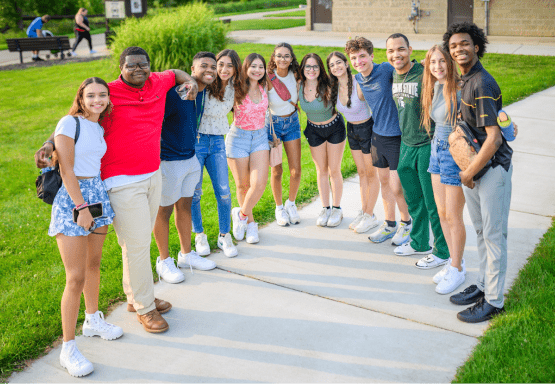
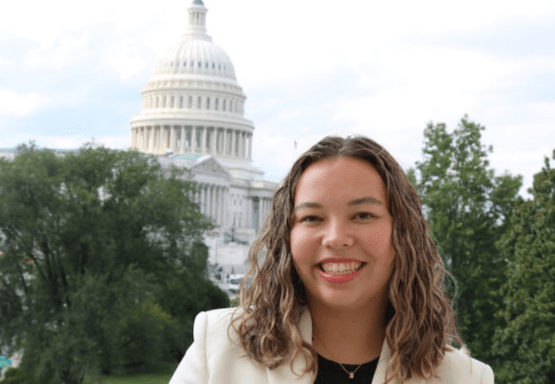
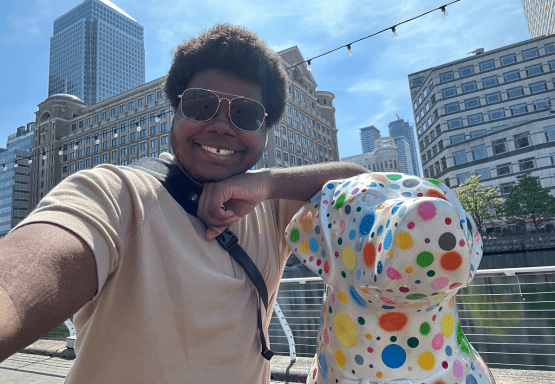
.png?h=384&iar=0&w=555)
